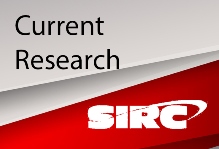OLYMPIC MEDAL-WINNING COACH LEADERSHIP
October 28, 2015
SIRC is pleased to be working together with Sport Canada to share current research on topics informing policy and promoting quality sport programming. This week we are sharing highlights of a recent article examining OLYMPIC MEDAL-WINNING COACH LEADERSHIP.
Olympic Medal-Winning Leadership.
Din, C., Paskevich, D., Gabriele, T., Werthner, P., Arnold, R., & Vella, S. (2015). International Journal Of Sports Science & Coaching, 10(4), 589-604.
SIRC Highlights from the research
According to the authors, “the purpose of this research was to develop a detailed description of leadership in contemporary Canadian Olympic medal-winning sport to better understand how Olympic podium performances are developed”. The integrated research model of Olympic podium performance was used as the theoretical framework for this research. Specifically, the authors sought to understand the coaching leadership that preceded podium performances at the 2010 winter Olympic Games by interviewing coaches and athletes who together won a medal at the Games and to uncover leadership themes within the context of these interviews. The following three overarching themes and ten sub-themes were identified:
Theme One – Demanding Leadership: managing and leading directly and decisively. General consensus supports the notion that the efforts of coaches at this level are enormous. Communication to both athletes and support staff was described as clear and specific.
Sub-themes:
- Directive Coach Behaviour – frank and concise communications directing clear expectations of both athletes and support team.
- Decisive Conductor – coach seen as the leader and manager of the athlete, sport scientists and support staff, ultimately making the tough decisions.
Theme Two – Relational Leadership: creating and strengthening individual connections.
Sub-themes:
Coach-Athlete Relationship – respect and trust developed over time. Coaches should know their athletes both as competitors and as individuals as well.
- Coaches as Teachers – at this level, the athletes felt they were learning more about their sport, their life and themselves at the Olympic preparatory stage from their coaches.
- Role Modelling – coaches emphasize the importance of leading by example, modeling the desired behaviours and attitudes (calm and confidence).
Theme Three – Solution-focused Leadership: relentless searching for ways to improve training and performance.
Sub-themes:
- Vision – building a long-term fluid and adaptive plan that focuses on specific information needed to perform on demand at their best against the world’s best.
- Structured Learning Culture – coach creates and maintains a stable learning environment that allows the athlete to develop to their best. Mistakes in this environment are used as opportunities for learning and positive growth.
- It Takes a Village – each coach and athlete in the study claimed it was the cumulative work of a support team (naming a variety of family, assistants and experts) that makes a gold medal performance; the coaches’ role being to keep their support team on task and aligned with the performance plan.
- Role Clarity and Recognition – provide clarity and recognition of each individual’s role within the performance context.
- Analytic Tenacity – a devotion to analysis and “an unending search for the details that would make the difference between a good performance and a podium performance”.
An important outcome of this research was the proposal of a new research model of Olympic podium performance based upon the three main themes of the research derived from the original integrated research model as well as the sub-themes that developed out of the study.
The information presented in SIRC blogs and SIRCuit articles is accurate and reliable as of the date of publication. Developments that occur after the date of publication may impact the current accuracy of the information presented in a previously published blog or article.
